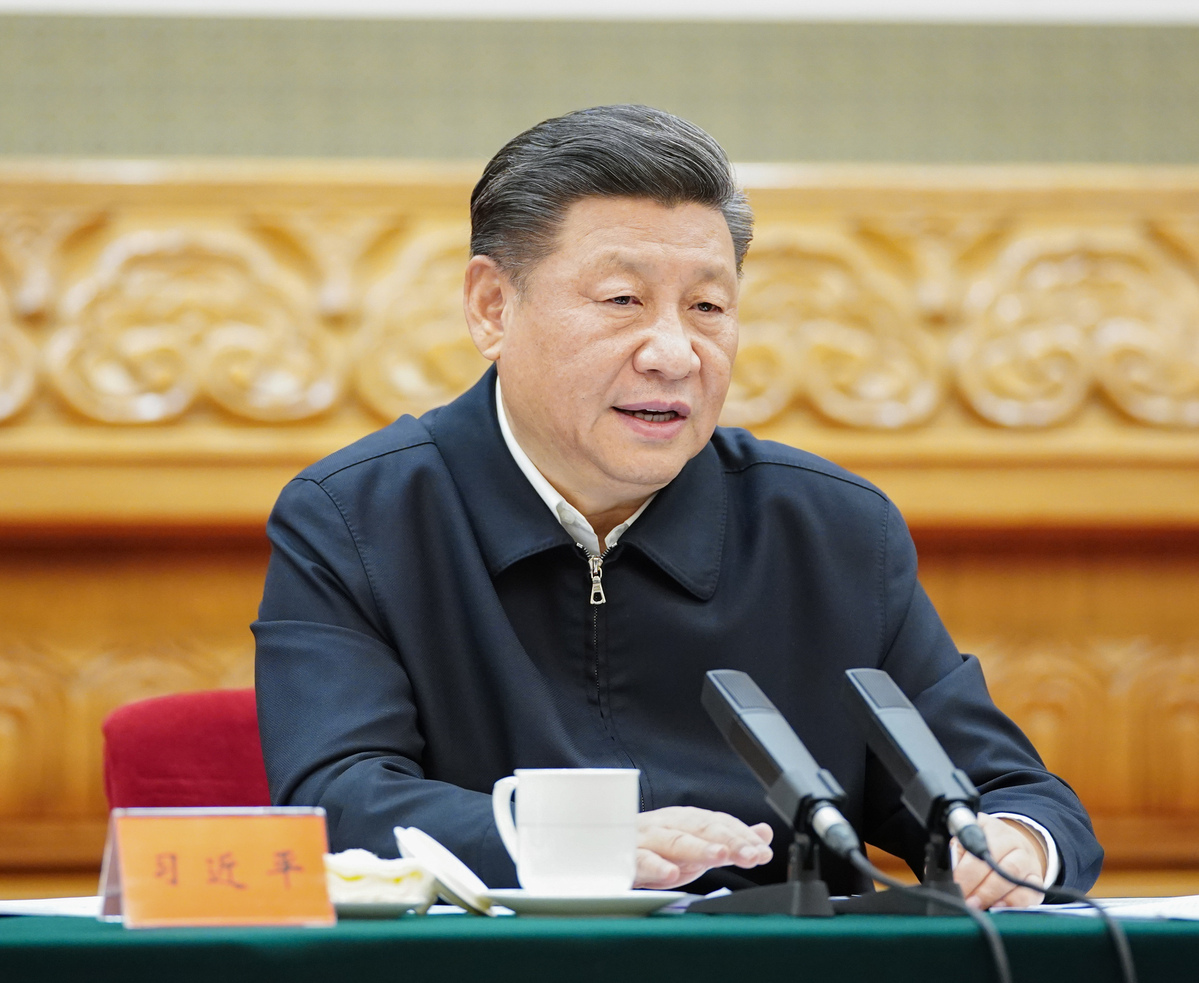Xi's speech sent strong message to the world


Analysts praise remarks about resilience of Chinese people, benefits of governance system
President Xi Jinping sent out a strong message to the world when he emphasized that the strength of the Chinese governance system and the will of its people would overcome the novel coronavirus pneumonia epidemic, according to analysts and experts.
They were reacting to his speech on Sunday in which he declared that crises in the past had only made the Chinese people "more and more courageous, growing up and rising up from the hardships".
Mario Cavolo, a corporate communications adviser based in China, said Xi conjured up the fighting spirit of the Chinese people in his address.
"He was saying this is our country, what we are going through now is tough, but what we are doing is succeeding and we will win out," he said.
"He was also spelling out that a government system such as China's is stable and efficient and when you want a response like this one, it can be quickly and impressively executed."
Andy Mok, founder and president of Red Pagoda Resources, which helps startup businesses in China and who is also a China commentator, said Xi sent a very powerful message.
"His speech epitomized both the Party's ability to respond effectively to challenges by mobilizing every sector of society and also made clear to the world the Chinese people's confidence in the country's political leadership and its ability to rally together to face difficulties with determination and resourcefulness," he said.
Xi also made clear that this was no time for complacency, stating that "no victory should be lightly announced until there is a complete win."
He set out in detail the steps the government had taken in terms of preventing the spread of the virus and said scientific research needed to be accelerated so drugs and a vaccine could be developed.
The president also stressed the need for regional and international cooperation and working with the World Health Organization.
Bruce Aylward, an epidemiologist who led an advance team from the WHO to Wuhan, Hubei province, said at a news conference in Beijing on Monday that China's response to the virus was "probably the most ambitious and agile" in history, adding China was the only country that has turned around such a serious and large-scale outbreak.
Alistair Michie, chairman of the international board at the Center for China and Globalization, a Beijing-based independent think tank, said Xi had set out the huge scale of China's response in his speech.
He said a trend is emerging where Europe and North America have closed their minds to what could be learned from China on how to minimize the impact of the global virus outbreak.
Michael Levitt, a Nobel prizewinner and professor of structural biology at the Stanford University School of Medicine, has been supportive of China's efforts to combat the disease.
He believes Xi was right to stress international cooperation in his speech. Throughout the outbreak, the molecular biologist has been using Chinese and WHO data to make forecasts about the progression of the virus.
"The fact that early analysis of the data has held up so well is a tribute to Chinese data transparency. The figures have been consistent throughout. It is encouraging that many others started to do their own analysis and were calmed by the message in the numbers that the virus was being controlled," he said.
Cavolo, the communications specialist, said Xi was right to highlight the impressive measures that China has taken.
"There are now relatively few new cases every day and this in a country of 1.4 billion people. China's response to the crisis is going to be seen as a remarkable case study in universities and institutions in how governments respond to a health crisis or emergency," he said.
Xi said in his speech that the outbreak was the most extensive infection and the most difficult to contain in the country since the founding of the People's Republic of China in 1949.
He stressed that the prevention and control work has demonstrated the notable advantages of the leadership of the Communist Party of China and the system of socialism with Chinese characteristics.
Ma Liang, a professor of public policy at the National Academy of Development and Strategy at Renmin University of China, said Xi's emphasis on the strength of the Chinese government system was timely.
"His speech may be seen as a watershed moment in the control of the virus. Given the unremitting efforts and tremendous achievements over the past two months, I dare to say that no other governance system could have dealt with this the same as China," he said.
Ma, who has written extensively on the national government modernization that China is embarking upon, noted that Xi stressed in his speech that there was room for improvement.
"He urged cadres to improve their risk awareness and professional competence in terms of epidemic prevention and control, which were factors exposed in the early stages of the outbreak in Wuhan when some steps were not taken."
Xi also made reference in his speech to the economy and said there was a need to continue to take steps to control the virus while at the same time resuming work and production in an orderly manner.
He said that while the outbreak was a setback, it was still important to strive to achieve the goals and tasks for economic and social development this year. China aims to become a "moderately prosperous society" by the end of this year, defined by a doubling of the country's 2010 per capita GDP, and to eliminate all extreme poverty in time for the 100th anniversary of the CPC next year.
Michie said it was important that Xi made clear China would not be deflected from meeting those goals.
"In the past 40-plus years, China has modernized at a scale and speed that is unprecedented in human history. Every year in those four decades, many pundits outside China have predicted the Chinese economic miracle was going to burst," he said.
- Task force to investigate prenatal exam failure in Hubei
- Report on tailings dam collapse in Yunnan suggests accountability for 26 individuals
- Beijing-Zhangjiakou trains expand ski gear service
- Documentary 'Through Ice and Snow' is to be broadcast internationally
- China launches new remote-sensing satellite
- China unveils undersea drilling robot to boost deep-sea exploration




































